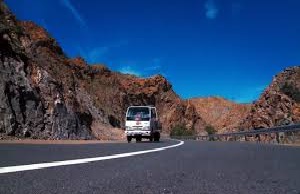The World Bank has agreed to provide a loan of $500m to Bangladesh to improve road connectivity along the Jashore-Jhenaidah corridor that covers four western districts.
The $500m loan is being provided under the Western Economic Corridor and Regional Enhancement (WeCARE) Phase I project and is first of a multi-phased $1.4bn programme to upgrade the existing 110km highways of Bhomra-Satkhira-Navaron and Jahore-Jhenaidah from two-lane to four-lane in the western part of the country.
The project will support the government’s plan to develop a 260km economic corridor in the western part, which is expected to be beneficial for over 20 million people.
In the first phase of the programme, 48km of the N7 highway between Jashore and Jhenaidah will be upgraded. For improved road safety, extra lanes will be added to the highway, for slow-moving vehicles along with a median safety barrier to separate oncoming traffic.
It will also include improving about 600km of connecting rural roads and 32 rural markets/growth centres. The improvements are expected to stimulate the local economy.
World Bank country director for Bangladesh and Bhutan Mercy Tembon said: “The western region of Bangladesh is endowed with many agricultural and natural produce and holds great potential of becoming a gateway for regional and international trade.
“This project will unlock the region’s potential by stimulating the economy of districts, linking farms to markets, connecting Dhaka with the western region as well as with neighbouring countries, thus enhancing trade, transit and logistics along the corridor.”
The project will also help in realising the ‘Digital Bangladesh’ vision, where fibre optic cables will be installed along the highway to provide reliable and affordable internet access. The service is expected to crucial for emergency responses and business continuities, during the global Covid-19 pandemic.
World Bank senior transport specialist and project task team leader Rajesh Rohatgi said: “The Covid-19 pandemic has hit the poorest hard with the loss of jobs and income. To help them recover from the shock, the project will support immediate social protection and livelihoods to the vulnerable rural people by engaging them in labour-intensive civil works.
“Even in the post-Covid period, the project will create jobs for the local communities through civil works for the national highway and connecting rural roads and markets.
“It will also support the country’s two key transport agencies – Roads and Highway Division and Local Government Engineering Department – to enhance emergency preparedness for any future pandemic or crisis.”


